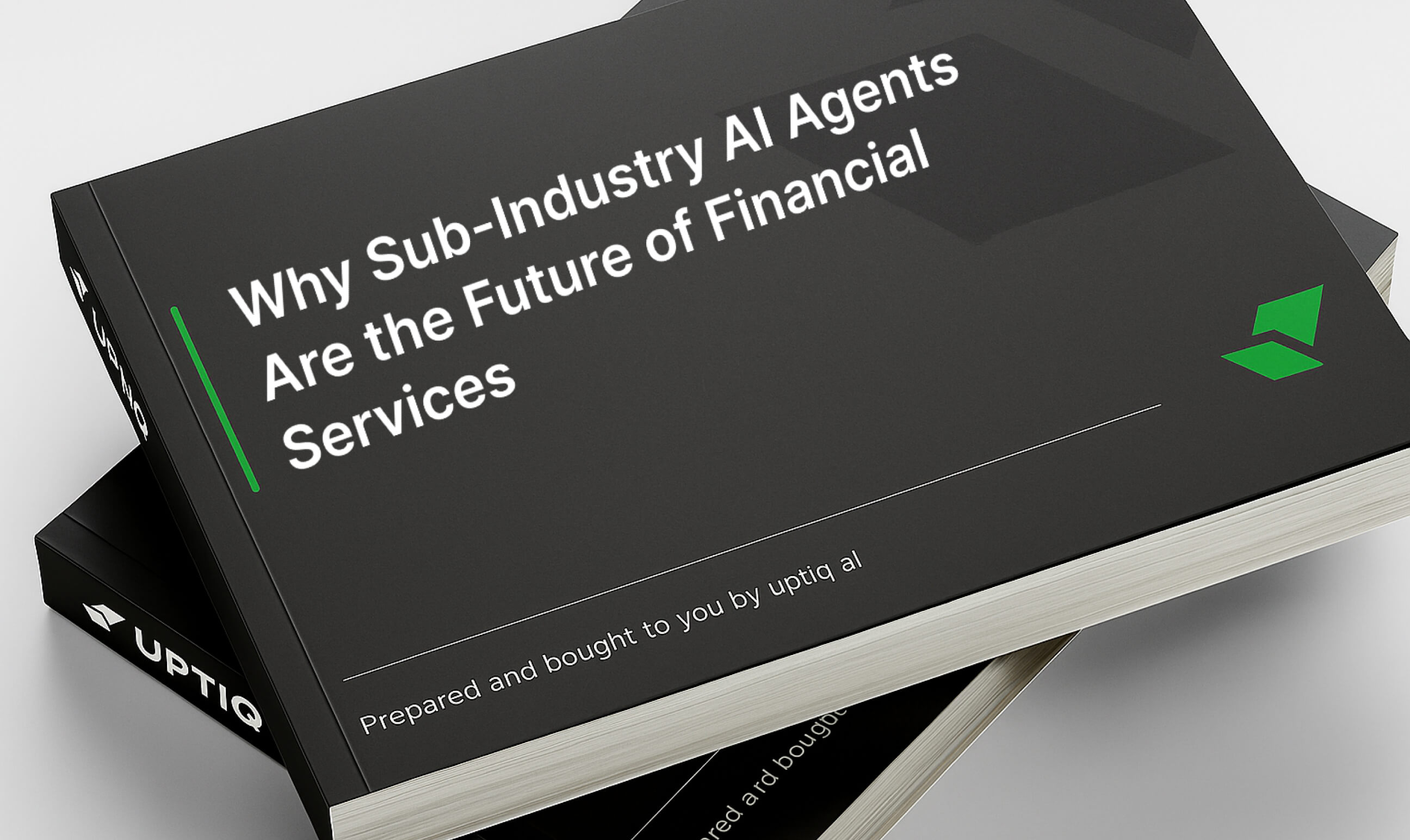Series B:
Uptiq raises $25M to add AI agents to bank workflows
Read More
-


The future of financial services is intelligent, adaptive, and automated—and sub-industry AI agents are leading the charge.
While artificial intelligence (AI) has made impressive inroads into finance, many institutions still rely on broad, generalized AI tools. These tools may detect fraud or categorize expenses, but they often fall short when it comes to the deep, domain-specific workflows that define sub-industries like mortgages, wealth management, insurance, or small-business lending.
That’s where sub-industry AI agents come in—AI systems trained, fine-tuned, and optimized for highly specific financial use cases. From end-to-end mortgage underwriting to real-time investment advisory, these AI agents are transforming how financial institutions operate, compete, and scale.
Unlike generic AI platforms or rule-based automation, sub-industry AI agents are:
Think of them as intelligent digital workers, built for a precise role in a precise sub-sector—whether that’s mortgage origination, financial planning, or fraud prevention in digital payments.
Financial services aren’t just data-rich—they’re compliance-heavy, rule-driven, and high-stakes. A generic AI chatbot or AutoML model might help with basic tasks, but it can’t manage the nuance of mortgage processing, AML checks, or investment risk analysis without significant manual tuning.
Sub-industry AI agents, on the other hand, are built with financial rules, regulations, and workflows embedded into their core logic. This means they can:
With compliance baked in, institutions reduce legal risk and audit complexity.
Custom AI models take time—months of training, testing, and tuning. Sub-industry AI agents eliminate this ramp-up by offering pre-trained, domain-ready intelligence.
For example, instead of building a mortgage decisioning model from scratch, a financial firm can deploy an AI agent that:
All in one seamless workflow—saving weeks of development and processing time.
Sub-industries like wealth management or SMB banking demand personalized service, but doing so manually doesn’t scale.
Sub-industry AI agents can:
They don’t just automate—they intelligently adapt to user needs and preferences, improving customer experience and retention.
One major hurdle to digital transformation is system integration. Sub-industry AI agents are often designed to plug into core banking systems, CRMs, or data lakes via APIs—making deployment smooth and scalable.
For instance, Uptiq.ai’s AI agents come with native connectors for:
This makes it easy for product teams and integrators to activate AI without major rewrites or architecture overhauls.
The best AI agents don’t just automate tasks—they learn and optimize over time.
Modern sub-industry AI agents can:
This dynamic learning means that the AI evolves with your business and the regulatory environment, making it a future-proof investment.
Here’s how sub-industry AI agents are already transforming financial services:
The era of general-purpose AI in finance is being replaced by intelligent, specialized agents that know the language, logic, and regulations of their domain. These sub-industry AI agents offer the precision, personalization, and performance that modern financial institutions need to thrive.
Platforms like Uptiq.ai are leading this shift—providing developers and business teams with ready-to-use, customizable agents for critical financial workflows.